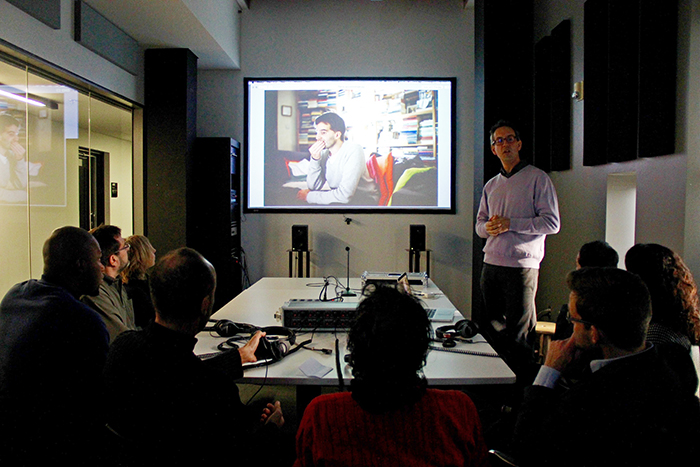From Nov. 13 to 20, McGill Innovation Week (MIW) hosted 27 free events on campus and in the Montreal community to celebrate innovation and entrepreneurship and to connect local actors with the McGill community. The McGill Office of Innovation and Partnership joined with groups such as the Quartier de l'Innovation de Montréal and Centre d'Entreprises et d'Innovation de Montréal to showcase current innovations in various fields, including music, visual arts, urban planning, education, agriculture, and health.
Tony Mistak, U2 Arts and a student intern organizer for MIW, hoped to reach a large audience and share the relevance of innovation to McGill students.
“The whole point of [MIW] and practicing innovation is to create the next—or the next generation—of forward thinkers,” Mistak said. “That’s why I like [MIW] so much, because there’s so much happening with so many different topics, and innovation needs to happen in all these different disciplines [….] I think it’s becoming important for us to provide the kind of expertise that would be suitable for what McGill represents because we’re all about excellence.”
The McGill Office of Innovation and Partnership provided a valuable opportunity for innovators from several fields to plan separate events under the MIW framework.
“[We] reach out to people who want to create events and have expertise in certain topics, and we add them to our programming,” Mistak said. “Our partners are creating these events, and we are connecting them all together.”
The week opened with a panel discussion that included five female entrepreneurs who ventured into new fields to start their businesses. Panelists included Dr. Margaret Magdesian, a former McGill biopharmaceutical researcher-turned-entrepreneur. Magdesian spoke about her experience stepping out of academia in order to bring the research she did at McGill on micro and nanodevices to the market.
“I developed hundreds of [micro and nanodevices] and they were all in my drawer, waiting for my next paper to be published […],” Magdesian said. “[Then] a company asked me for 10,000 [of the devices I developed…] and then I thought, ‘Oh wow, […] either I become an entrepreneur now and make a difference in everyone’s lives by providing them with tools, or I keep on trying to publish one paper at a time.’”
Similarly, Dr. Eric Lewis, McGill professor of philosophy and director of the Institute for the Public Life of Arts and Ideas, commented on the link between collaboration and innovation at a panel discussion titled Art and Our Infinite Appetite for Innovation on Nov. 15.
“Innovation is in the nature of collaboration,” Lewis said. “Innovation is the process as well as the product.”
Mistak was glad to see students from faculties other than management attending the events. He explained that innovation is not restricted to any one particular domain.
“Innovation is something new and improved for a [particular] subset of people,” Mistak said. “Although the idea does not seem new to you, it does not mean that it is not new to the subset of people that you’re [addressing].”
The McGill Innovation Week Presents: ENERj event was held on Nov. 16 and highlighted a technology startup company founded by two McGill alumnae. ENERj seeks to address climate change from the bottom—up through fun and interactive household electricity monitoring. Marc Jarvis, U3 Science, attended the event and said that ENERj is an innovative way to engage and mobilize people to address the issue of climate change.
“[The] innovation is either restructuring the problem so that it isn’t a problem anymore, or it’s finding a novel solution,” Jarvis said. “Or maybe there is a solution to something, but the innovation is engaging more people or engaging the issue in a different way.”









